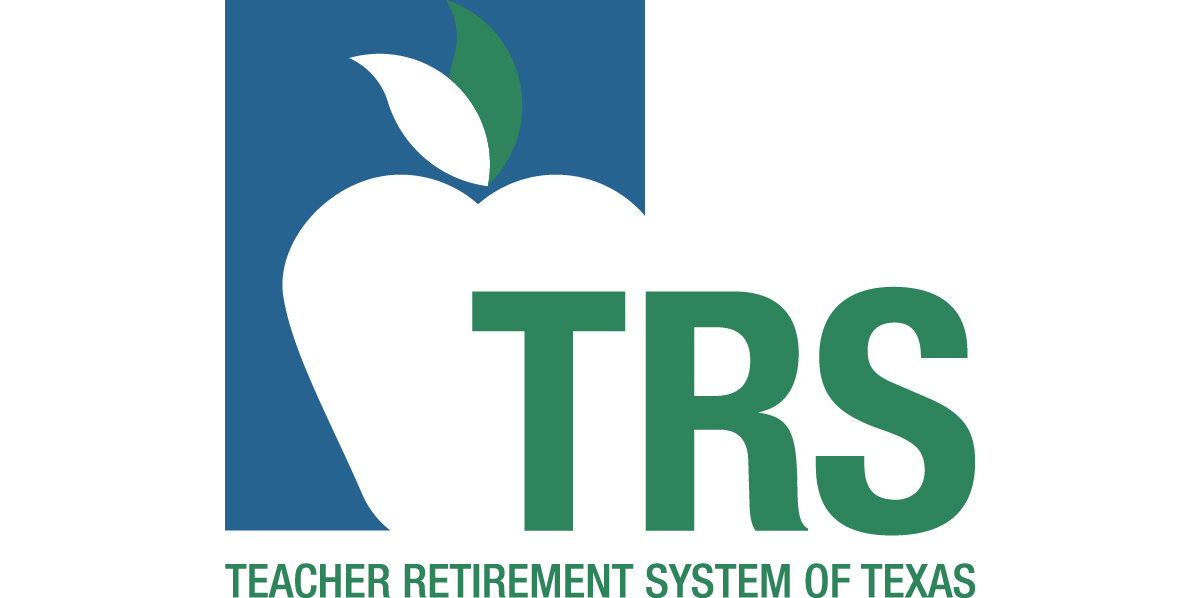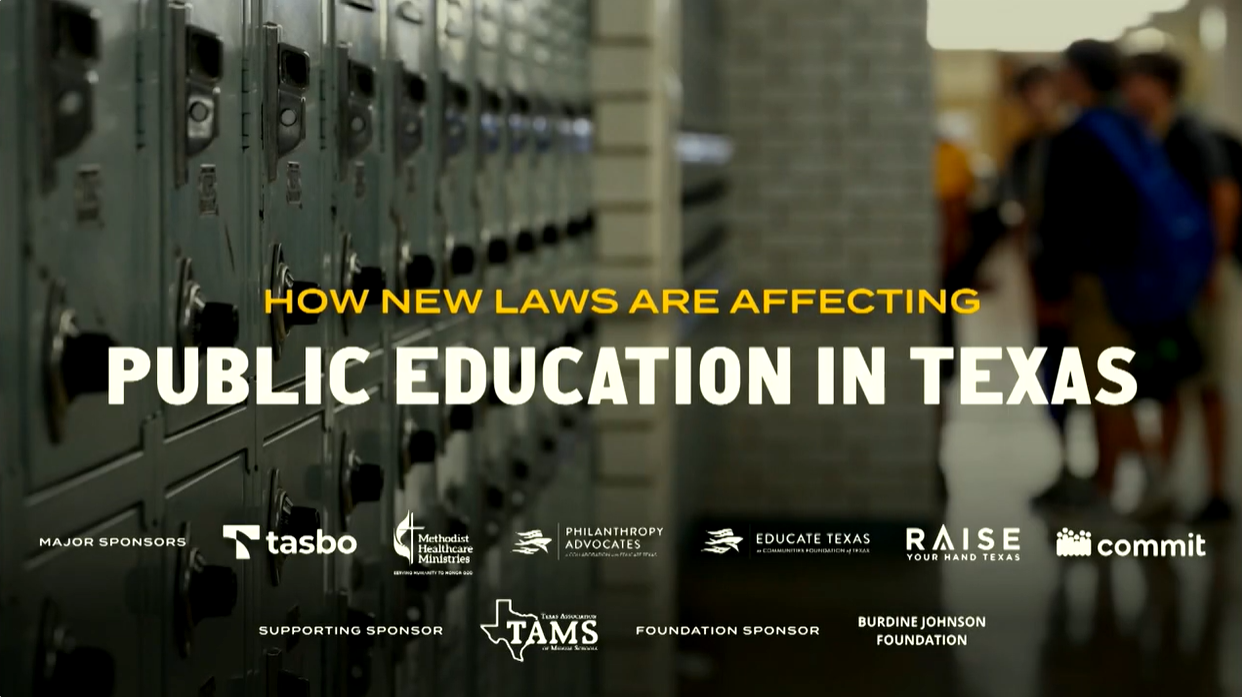Teach the Vote's Week in Review: Dec. 4, 2015

Date Posted: 12/04/2015 | Author: Jennifer Mitchell, CAE
Here's your weekly wrap-up of education news from Texas and beyond:
 This week the U.S. House of Representatives took a major step forward in the longstanding effort to reauthorize the outdated Elementary and Secondary Education Act (ESEA), also known as No Child Left Behind (NCLB). The new compromise, known as the Every Student Succeeds Act (ESSA), passed the House on Wednesday by a vote of 359 to 64.
The ESSA would do away with controversial federal accountability mandates, such as the requirements for Adequate Yearly Progress that have stymied states and school districts for years, forcing Texas and most other states to seek waivers. Under the new law, states would have more authority for creating their own accountability systems and sanctions but would still be required to test students in many grades. The bill aims to drastically reduce the federal government's control over education policies by preventing federal mandates such as national curriculum standards (e.g. Common Core) and the types of conditional funding grants (e.g. Race To The Top) that have prevailed under the current administration.
During Wednesday's tally, all of the opposing votes in the House were cast by Republicans, including nine members of the Texas delegation who voted against the ESSA: Reps. Brian Babin, John Culberson, Blake Farenthold, Louie Gohmert, Sam Johnson, Kenny Marchant, Ted Poe, John Ratcliffe, and Randy Weber.
House Education and the Workforce Committee Chairman John Kline (R-MN) and Ranking Member Robert C. “Bobby” Scott (D-VA) quickly issued statements praising the passage of the ESSA on Wednesday. Kline said, "Today, we helped turn the page on a flawed law and a failed approach to K-12 education." Scott called the vote "an embodiment of what we can achieve here in Washington – a workable compromise that does not force either side to desert its core beliefs."
The bill as passed by the House represents a compromise between earlier reauthorization bills filed in the House and Senate respectively, but the final negotiated version more closely resembles the Senate's draft. For that reason, it is expected that the ESSA will receive approval from the U.S. Senate next week, with plans to take up the measure on Tuesday, and be headed to President Obama's desk for signature in short order. Stay tuned to Teach the Vote for updates from ATPE's Austin and Washington-based lobby teams.
This week the U.S. House of Representatives took a major step forward in the longstanding effort to reauthorize the outdated Elementary and Secondary Education Act (ESEA), also known as No Child Left Behind (NCLB). The new compromise, known as the Every Student Succeeds Act (ESSA), passed the House on Wednesday by a vote of 359 to 64.
The ESSA would do away with controversial federal accountability mandates, such as the requirements for Adequate Yearly Progress that have stymied states and school districts for years, forcing Texas and most other states to seek waivers. Under the new law, states would have more authority for creating their own accountability systems and sanctions but would still be required to test students in many grades. The bill aims to drastically reduce the federal government's control over education policies by preventing federal mandates such as national curriculum standards (e.g. Common Core) and the types of conditional funding grants (e.g. Race To The Top) that have prevailed under the current administration.
During Wednesday's tally, all of the opposing votes in the House were cast by Republicans, including nine members of the Texas delegation who voted against the ESSA: Reps. Brian Babin, John Culberson, Blake Farenthold, Louie Gohmert, Sam Johnson, Kenny Marchant, Ted Poe, John Ratcliffe, and Randy Weber.
House Education and the Workforce Committee Chairman John Kline (R-MN) and Ranking Member Robert C. “Bobby” Scott (D-VA) quickly issued statements praising the passage of the ESSA on Wednesday. Kline said, "Today, we helped turn the page on a flawed law and a failed approach to K-12 education." Scott called the vote "an embodiment of what we can achieve here in Washington – a workable compromise that does not force either side to desert its core beliefs."
The bill as passed by the House represents a compromise between earlier reauthorization bills filed in the House and Senate respectively, but the final negotiated version more closely resembles the Senate's draft. For that reason, it is expected that the ESSA will receive approval from the U.S. Senate next week, with plans to take up the measure on Tuesday, and be headed to President Obama's desk for signature in short order. Stay tuned to Teach the Vote for updates from ATPE's Austin and Washington-based lobby teams.
The Center for Public Policy Priorities has scheduled a free webinar next week to discuss its new Texas Education Scorecard. The interactive web tool is intended to help Texans compare how various counties are faring in areas such as school readiness, education funding, and transitions to college. To participate in the webinar at noon on Wednesday, Dec. 9, click here to register.
Gov. Greg Abbott announced on Monday that he has appointed Josh McGee of Houston, Stephanie Leibe of Austin, and Ernest Richards of Irving to serve on the Pension Review Board. McGee will serve as presiding officer of the board, which reviews all public retirement systems in Texas for actuarial soundness and compliance with state law. Liebe and Richards are both attorneys. The appointment of McGee is controversial because of his position as vice president with the Laura and John Arnold Foundation, an organization that has actively advocated for legislation that many believe would weaken public retirement systems around the country; the foundation staff's recommendations in many states have included such changes as converting defined benefit pension plans to defined contribution plans. In the governor's press release about the appointments, Abbott's office described McGee somewhat differently, as one who "leads the organization’s nationwide efforts to improve retirement security." The appointment quickly raised eyebrows among ATPE and other stakeholder groups that represent public employees, such as the Texas Retired Teachers Association and the Combined Law Enforcement Association of Texas. Read more about why the appointment is controversial in Ross Ramsey's editorial today for The Texas Tribune, which we've republished here on Teach the Vote. The governor's recent appointments to education-related committees do appear to signal his continuing interest in reform agendas. As we reported last month, Abbott chose Dallas ISD board member Mike Morath, an outspoken proponent of home rule charter districts, to lead the new Texas Commission on Next Generation Assessments and Accountability. (As an interesting side note, it was widely reported that the Morath-supported move to try to convert Dallas ISD to a home rule charter district last year was financed by John Arnold, founder of the aforementioned Arnold Foundation.) Abbott also generated unfavorable and national media attention after tapping home-school advocate Donna Bahorich to chair the State Board of Education; Bahorich previously worked as a staff member for Dan Patrick prior to his election as lieutenant governor. The latest appointment of another member of the reform crowd is certain to fuel ongoing speculation on whom the governor might select as a new commissioner of education.
With the holidays right around the corner, next week features a busy schedule of high-profile hearings dealing with education issues. First, on Monday, Dec. 7, the Senate Education Committee will conduct a public hearing to address two of its interim charges. The committee, chaired by Sen. Larry Taylor, will take up the issues of charter schools and dealing with inappropriate relationships between teachers and students. ATPE will be providing testimony at the hearing and will report on the meeting in detail next week. The Senate Select Committee on Property Tax Reform and Relief will also conduct an organizational meeting on Monday; no testimony will be taken. Additionally, the TRS Board of Trustees will meet in Richardson, Texas, on Monday; view its agenda here. On Friday, Dec. 11, the State Board for Educator Certification (SBEC) holds its next regular meeting. (SBEC's Committee on Educator Discipline will meet on the afternoon of Dec. 10.) SBEC's lengthy agenda for Friday includes revisiting a controversial proposal to change the requirements for becoming certified as a superintendent in Texas. The revised rule, which ATPE opposed, was struck down by the State Board of Education last month after SBOE members heard testimony from ATPE and other education groups concerned about watering down the superintendent certification standards. Stay tuned for updates from the SBEC meeting next week. As always, we encourage you to follow Teach the Vote and our ATPE lobby team on Twitter for the latest developments.
CONVERSATION
RECOMMENDED FOR YOU

04/18/2024
5th Circuit Court denies rehearing in publishers’ Texas library book lawsuit
Author of HB 900 urges Paxton to appeal to the U.S. Supreme Court.

04/17/2024
TRS board to consider lowering TRS-Care Medicare Advantage premiums
Increased legislative funding, federal changes mean TRS is positioned to pass on savings to plan participants.

04/16/2024
Texas Tribune hosts panel on the impact of new legislation on Texas public education
The hourlong conversation focused primarily on the need for and impact of three pieces of legislation passed in 2023.

